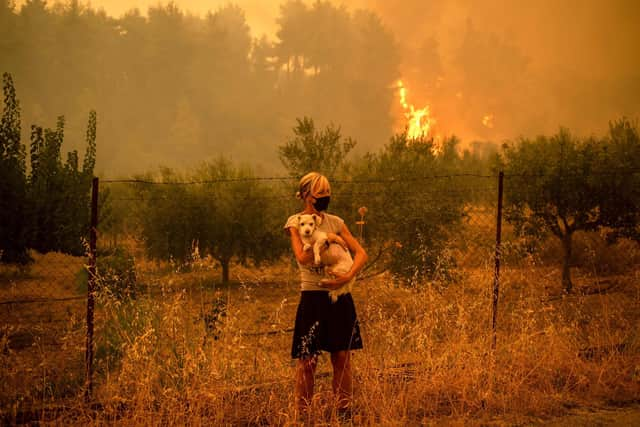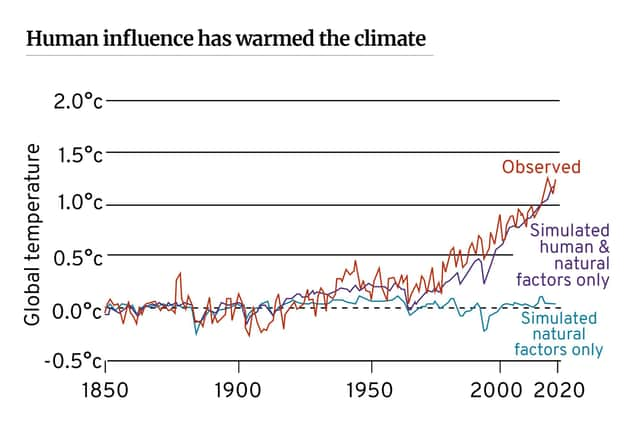COP26: The five key takeaways from international report on climate change catastrophe
The conclusion comes in a major new report from the Intergovernmental Panel on Climate Change (IPCC), the United Nations body for assessing the science related to climate change.
The new study is the starkest warning yet on the consequences of runaway warming, and represents eight years of work by thousands of experts across the world.
Advertisement
Hide AdAdvertisement
Hide Ad“This report is a reality check,” said Valérie Masson-Delmotte, co-chair of IPCC Working Group I, which prepared the assessment.


“We now have a much clearer picture of the past, present and future climate, which is essential for understanding where we are headed, what can be done and how we can prepare.”
Five key findings from the report are:
- It is unequivocal that human influence has warmed the atmosphere, ocean and land, with widespread and rapid changes in the atmosphere, ocean, cryosphere and biosphere since industrial times;
- The scale of recent changes across the climate system as a whole and its present state are unprecedented over many centuries to many thousands of years;


- Human-induced climate change is already affecting many weather and climate extremes in every region across the globe, with evidence of increasing heatwaves, heavy rainfall, droughts and tropical cyclones;
- Global surface temperature will continue to rise under all emissions scenarios considered, with warming going beyond 1.5C and 2C during this century unless deep reductions in emissions are made in the next few years;
- Many changes due to past and future greenhouse gas emissions are irreversible for centuries to millennia, especially ocean acidification, melting ice sheets and sea level rise.
The Working Group I report is the first instalment of the IPCC’s Sixth Assessment Report, which will be completed in 2022.
Advertisement
Hide AdAdvertisement
Hide AdIt is the first since 2013, representing eight years of work by the world’s leading climate scientists.
Originally scheduled for release in April, the report was delayed for several months by the Covid-19 pandemic as work in the scientific community shifted online.
This is the first time the IPCC has conducted a virtual approval session for one of its reports.
A message from the Editor:
Thank you for reading this article. We’re more reliant on your support than ever as the shift in consumer habits brought about by coronavirus impacts our advertisers.
If you haven’t already, please consider supporting our trusted, fact-checked journalism by taking out a digital subscription.
Comments
Want to join the conversation? Please or to comment on this article.
